Steering medication management in assisted living is essential for ensuring residents’ health and safety. It requires a clear understanding of the “seven Rs” of medication administration—right resident, drug, route, time, and dose. Each step is important to prevent errors that could impact well-being. As you explore the thorough guidelines and support systems in place, you’ll discover how effective training and monitoring can make a significant difference in the lives of seniors. What challenges might arise in this process?
Understanding Medication Management and Administration
When you think about the health and safety of residents in assisted living facilities, understanding the distinction between medication management and administration is crucial.
Medication management involves overseeing the entire process to guarantee safety and compliance, while administration focuses specifically on how medications are given.
Effective medication management programs can greatly reduce errors, enhancing residents’ well-being. For instance, by following the “seven Rs”—right resident, drug, route, time, and dose—facilities can minimize risks.
Recognizing these differences not only promotes safety but also supports a more effective approach to caring for residents’ health needs in assisted living environments.
Key Personnel in Medication Administration
In assisted living facilities, understanding the key personnel involved in medication administration is essential for ensuring safe and effective care. Physicians often prescribe medications, while nurses are typically responsible for administering them.
Certified medical technicians may also play a role in this process. Additionally, allied health professionals, like respiratory therapists, can be involved in administering specific treatments.
It’s important to note that some residents may self-administer medications, particularly in independent living scenarios. Knowing who’s responsible for what helps create a safe environment, minimizing the risk of medication errors and ensuring that residents receive the correct medications at the right time.
Common Challenges Faced by Seniors
Seniors often encounter a range of challenges that complicate medication management and increase the risk of errors. Age-related issues like memory loss and vision changes can make it hard to remember dosages or identify medications.
Financial pressures may lead you to skip doses, while polypharmacy—taking multiple medications—adds to the confusion. You might also struggle with limited dexterity, making it difficult to open containers or read labels.
Additionally, unclear prescriptions or similar-sounding drug names can contribute to mistakes. These factors underscore the importance of effective support systems in managing your medications safely and efficiently.
State Guidelines and Community Policies
Understanding the state guidelines and community policies regarding medication administration is vital for guaranteeing the safety and well-being of residents in assisted living facilities. Each state has specific laws that dictate how medications are managed and administered, which can vary considerably.
It’s important to check your community’s licensing capabilities and compliance with these regulations. Inquire about their medication management programs, the training staff receives, and how they document medication administration.
Staying informed about these policies helps you advocate for quality care and confirms that residents receive the appropriate support needed for their medication needs, fostering a safe living environment.
Importance of Effective Medication Management Programs
While steering through the complexities of medication management in assisted living facilities, effective programs play an essential role in ensuring residents receive the right care.
These programs help minimize medication errors, such as incorrect doses or wrong medications, which can lead to serious health issues. By implementing strategies like the “seven Rs,” you can enhance safety and compliance.
Additionally, effective management programs promote proper monitoring of residents’ medications, ensuring timely administration and adherence to prescriptions.
Ultimately, investing in these programs not only safeguards residents’ health but also fosters a supportive environment where they can thrive and maintain their well-being.
Role of Technology in Medication Administration
Incorporating technology into medication administration can greatly enhance the safety and efficiency of care in assisted living facilities. Automated medication dispensers, for instance, provide alerts, ensuring residents receive the right dose at the right time.
Electronic health records streamline communication among healthcare providers, reducing the risk of errors. Mobile apps can remind residents about their medications, helping them stay compliant.
Additionally, telehealth consultations enable healthcare professionals to quickly address any concerns. By utilizing these technological advancements, you can create a safer environment for residents, minimizing medication errors, and ultimately improving their health outcomes and overall quality of life.
Considerations for Assisted Living and Memory Care
When considering assisted living and memory care, it’s vital to recognize the unique needs of residents who may face challenges related to cognitive decline and daily living activities. Understanding these challenges helps guarantee their safety and well-being.
For instance, medication management must be tailored to accommodate memory issues and potential confusion about dosages. Additionally, staff training is significant, as trained personnel can assist residents in maneuvering complex medication regimens.
Open communication between families, caregivers, and healthcare providers fosters a supportive environment, allowing residents to receive the appropriate attention and care they need to thrive in these communities.
Frequently Asked Questions
How Can Family Members Support Medication Management for Seniors?
To support medication management for seniors, you can help by organizing their medications into weekly pill organizers, ensuring they take the right doses at the right times.
Regularly review their prescriptions with them, clarifying any confusion about dosages or schedules. Encourage open communication with healthcare providers, and attend appointments together if possible.
Additionally, be mindful of any side effects and assist in tracking their health as they navigate their medication regimens.
What Should Be Done if a Dose Is Missed?
If you’ve missed a dose, don’t panic. First, check the medication instructions.
If it’s close to the next scheduled dose, skip the missed one—never double up. If it’s not close, take it as soon as you remember.
Always consult your healthcare provider if you’re unsure or if you miss doses frequently.
Keeping a medication schedule or using reminders can help prevent missed doses in the future, ensuring you stay on track with your treatment.
Are There Any Resources for Medication Education for Seniors?
Yes, there are several valuable resources for medication education tailored for seniors.
You can explore local community centers, senior organizations, or health departments that often offer workshops or informational sessions.
Online platforms, such as the National Institute on Aging, provide accessible articles and videos about medication management.
Additionally, discussing medication concerns with healthcare providers can lead to personalized guidance and recommendations, ensuring you stay informed and safe regarding your medication practices.
How Can Seniors Safely Dispose of Unused Medications?
To safely dispose of unused medications, you should first check for any local drug take-back programs or events, as these offer a secure way to return medications.
If such options aren’t available, mix the medications with an undesirable substance, like used coffee grounds or kitty litter, then place the mixture in a sealed bag or container before throwing it in the trash.
Always remove personal information from medication containers before disposal.
What Steps to Take if a Medication Causes Side Effects?
If a medication causes side effects, you should first contact your healthcare provider immediately to discuss your symptoms.
They may adjust your dosage or switch you to a different medication.
Keep a record of the side effects, noting their severity and frequency, to help your provider make informed decisions.
Don’t stop taking the medication without guidance, as this could worsen your condition or lead to withdrawal symptoms.
Always prioritize your health and safety.
Bottom Line
In conclusion, effective medication management in assisted living is essential for residents’ safety and well-being. By adhering to the “seven Rs,” training staff thoroughly, and utilizing technology, you can greatly reduce the risks associated with medication administration. Addressing the unique challenges that seniors face guarantees a supportive environment that promotes health and independence. Ultimately, prioritizing these guidelines not only enhances compliance with state regulations but also fosters a community where residents can thrive and feel cared for.




